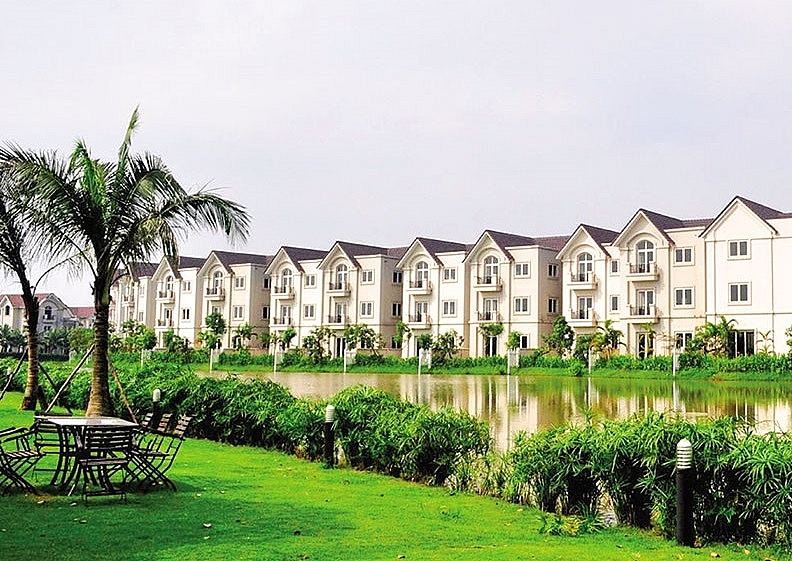Lack of rules slows smart city plans
 |
| A gigantic smart city project in Hanoi may have to wait for specific criteria, Photo: Le Toan |
Tran Quoc Thai, vice head of the Ministry of Construction’s (MoC) Urban Development Agency, told VIR that the implementation of a 4 trillion yen ($37.3 billion) synchronous smart city in Hanoi’s Dong Anh district “may not be easy because of a lack of specific criteria,” and would need “thorough studies.”
The Japanese government and more than 20 large Japanese firms, including Sumitomo, Mitsubishi, Panasonic, and Tokyo Metro, are reportedly planning to jointly construct this smart city.
Mitsubishi will provide unmanned buses and power charging stations, Panasonic and telecom developer KDDI will supply smart equipment which helps save energy, and Daikin will install smart air conditioning systems.
The 310 hectare project will be designed by Nikken Sekkei Group and is expected to be completed in 2023.
It is also expected that in October 2018, construction of about 7,000 buildings and commercial works will begin. This may be completed in late 2019.
“If completed, the colossal project will be Japan’s largest project in Vietnam, as well as the first synchronous smart city project in Vietnam,” Thai said. “However, we have yet to receive sufficient information and investment proposals for this project, and we also don’t know what will be done within it, while related ministries are devising rough criteria for this type of project.
“We only know that the investors are working with Hanoi authorities. However, I would say that this type of project will need very careful consideration because it is quite new to Vietnam,” the official continued. “Of course, in order to be implemented, the investors must seek approval from MoC and other related ministries.”
According to the Ministry of Information and Communications, the government has set a target of creating five smart cities by 2020, and is designing
criteria for such cities, making it more convenient for foreign investors to invest in building them.
“Many provinces and cities are compiling their own schemes for developing smart urban areas, focusing on a number of sectors including health care, environment, e-government, traffic, and security,” said a ministry representative at a recent Vietnam-France smart city seminar in Hanoi. “Many big local and foreign firms have engaged in these schemes, especially European firms who have decades of experience in operating smart cities.”
In late 2017, 20 Slovak firms operating in high technologies came to Vietnam in search of opportunities. They plan to work with the government, ministries, and many local partners to introduce their smart urban technologies.
Asseco Central Europe, one of the biggest software developers in Central and Eastern Europe, signed a memorandum of understanding with the Hanoi People’s Committee on a project supplying smart software sets, which will help the city improve its planning in land, governance, and lighting.
“Aside from Hanoi, we are also seeking other partners in Vietnam, including ministries, enterprises, and organisations,” said Asseco representative Andrej Zmecek. “We can provide all types of smart software for all sectors of the economy.”
Another tech firm, the information and aviation specialist Virtual Reality Media (VRM), said that it is working with Vietnamese partners on plans to distribute its software and industrial modelling solutions in Vietnam. These products are focused on
simulation systems for vehicles, aeroplanes, and helicopters, as well as automated transport systems.
“Vietnam’s urbanisation is booming, with growing demand for these solutions. We really want to meet with those who are interested in our solutions,” said Eduard Cristea, a representative from VRM.
What the stars mean:
★ Poor ★ ★ Promising ★★★ Good ★★★★ Very good ★★★★★ Exceptional
Related Contents
Latest News
More News
- VinaCapital launches Vietnam's first two strategic-beta ETFs (February 26, 2026 | 09:00)
- PM sets five key tasks to accelerate sci-tech development (February 26, 2026 | 08:00)
- PM outlines new tasks for healthcare sector (February 25, 2026 | 16:00)
- Citi report finds global trade transformed by tariffs and AI (February 25, 2026 | 10:49)
- Vietnam sets ambitious dairy growth targets (February 24, 2026 | 18:00)
- Vietnam, New Zealand seek level-up in ties (February 19, 2026 | 18:06)
- Untapped potential in relations with Indonesia (February 19, 2026 | 17:56)
- German strengths match Vietnamese aspirations (February 19, 2026 | 17:40)
- Vietnam’s pivotal year for advancing sustainability (February 19, 2026 | 08:44)
- Strengthening the core role of industry and trade (February 19, 2026 | 08:35)

 Tag:
Tag:


![[Infographic] AMATA: Industrial and Smart City Developer](https://vir.com.vn/stores/news_dataimages/2026/022026/12/16/croped/amata-industrial-and-smart-city-developer-20260212165823.jpg?260212050401)




















 Mobile Version
Mobile Version